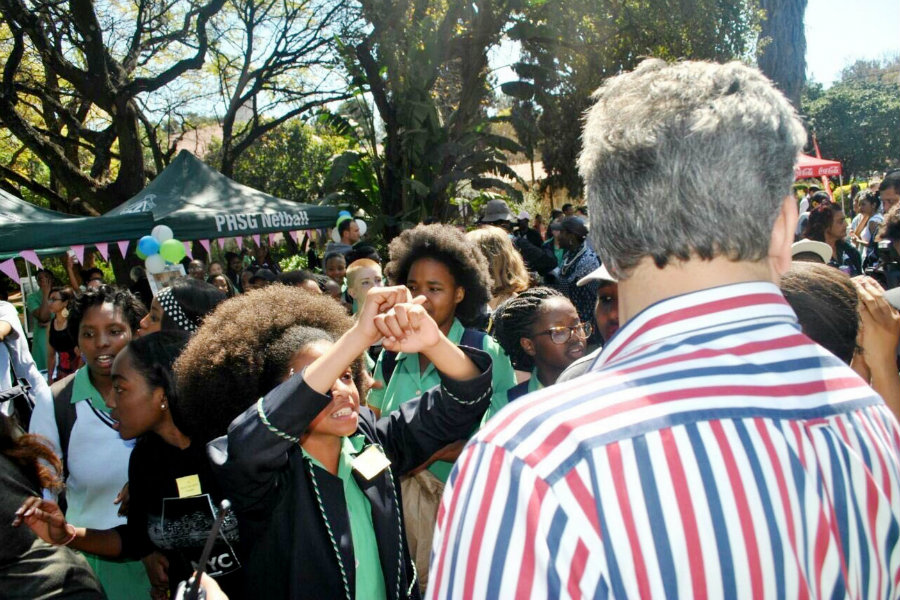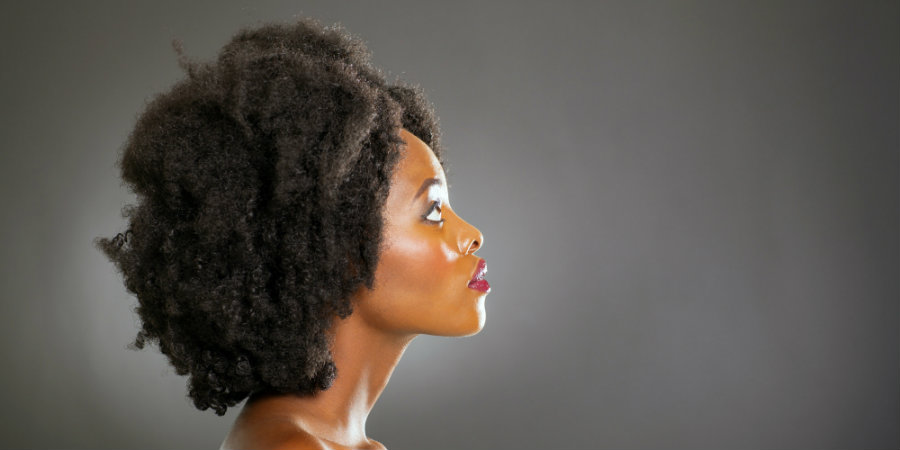On Monday, 29 August, South African students at Pretoria High School for Girls protested the systematic racist hair policy that infringes on the expression of their African identity.
The high school that was previously only reserved for whites is accused of continuing to employ institutional racism against Black students who are often reprimanded for celebrating their African heritage. They are told to “tidy” their hair when they choose to wear it naturally in afros and are sent to detention if they refuse. Students have also highlighted the school’s attack on the integrity of its Black students.

“Children that are Afrikaans, German or Spanish are allowed to speak their native tongues, but we South Africans are not allowed to speak our African native tongues,” reported Tiisetso Phetla, former student at the institution who graduated in 2014, according to Public Radio International.
Unwritten laws reflective of an ongoing apartheid system
The code of conduct to which Pretoria Girls High conforms does not blatantly mention afros. CNN reports that what is specified is that students “should be conservative, neat and in keeping with the school uniform.” It is normal for any institution to seek to uphold a good representation of itself through its students or staff. Simultaneously, it is important to take the context of the school into consideration to fully understand the implications and connotations that accompany terms such as “conservative” and “neat.”
The school was established in 1902 and offered education only to white students during apartheid until 1990 when the school allowed for integration among its students. It has been 26 years since this substantial change, yet many of the Black students at the institution still feel that there is ongoing racism that has yet to be addressed.

Pretoria Girls High alumnus and former prefect, Lebo Kgothadi, who graduated from the school in 2009 told CNN that she was made to enforce rules as part of her duties as the prefect, that made her feel uncomfortable as a young Black girl herself. She recalled that part of their daily inspections included ensuring that all students’ hair was tied or pushed back, which was something difficult to achieve with afros. Through encouraging the young Black girls to use chemically-based relaxers to straighten their hair, they would be able to contain the savagery it was deemed to portray.
The situation at Pretoria Girls High has sparked protests at other schools in the country such as Lawson Brown High in Eastern Cape while at St. Michael’s School for Girls in Bloemfontein, students and parents also addressed problematic regulations. Furthermore, on Tuesday, 30 August, the Tshwane municipality, of which Pretoria is part, saw numerous students from different schools in the area gather outside Pretoria Girls High in solidarity against racist policies. The students at the institution were banned from participating, signaling yet another problematic stance the school seems to hold. Instead of blocking the students, why not address them if the goal is in fact to make actual progress?
The Gauteng Department of Education said that, after a visit to Pretoria Girls High by the province’s education minister, Panyaza Lesufi, it has decided to review schools’ code of conduct and suspend clauses relating to hairstyles until further notice.
The strong young ladies who were ready to be arrested by the security forces the school had employed against them during Monday’s protests are part of a greater movement in which Black Women in South Africa, or Azania by its political-historical name, are engaging. The Mbokodo movement that first came to life in the 1950’s where Black women of the nation fought against oppressive and degrading apartheid laws is being revived by the young Black Women of today.
Although many changes in South Africa (Azania) can be traced to the ending of apartheid, some of these changes mostly occurred on paper rather than in practice. It is for this reason that feelings of frustration, discontent, and disappointment amongst youth and Black women have sparked protests of such a nature. Even the #FeesMustFall movement that came about last year at universities speaks to a growing revolution among the youth who are tired of waiting for promises made at the abolition of the apartheid regime to be concretised.
Source: CNN
